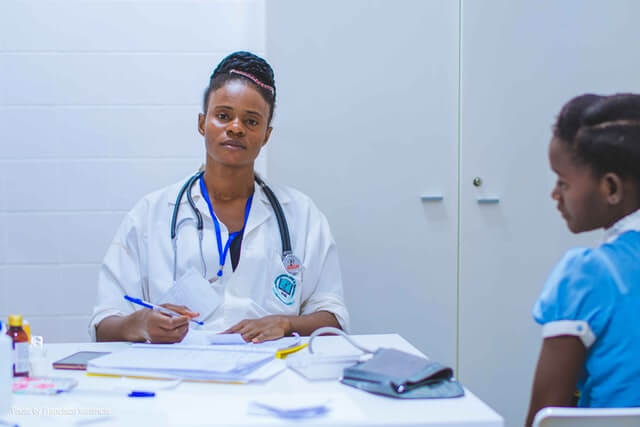When you take a patient’s history, you’re essentially gaining an overview of their injury or illness as well as gleaning background information to help reach a diagnosis. The information your patient gives can also be used in planning their care and treatment going forward.
Think of it as like a “chat with a purpose”. You’re trying to get the information you need about the patient’s life and their condition. You’re therefore driving the conversation – it’s an active, not a passive process.
History taking is a vital tool in healthcare but it’s essential to get it right. A full and comprehensive history can only be taken if an effective structure is adhered to, and where good communication has been established from the start. This is quite a skill in itself!
What are the key communication skills needed here?
The most important thing is to achieve an open, honest relationship with your patient that is based on trust. You want your patient to feel comfortable and confident enough to open up, even if the subject is uncomfortable or embarrassing for them.
Although there are no set rules around what good communication is, we recommend always making sure you:
Speak clearly and use language that is transparent and unambiguous.
Are completely honest with your patient. Try to avoid too much medical jargon that could lead to confusion.
Actively listen to the patient, asking for and respecting their views. A good way of doing this is by using phrases such as “Tell me more about…”
Consider verbal and non-verbal communication skills.
Try to build a rapport with your patient. If they feel you’re friendly towards them they’re more likely to want to discuss their concerns.
Are positive but empathetic. Acknowledge your patient’s worries and try to calmly put them at ease.
Are you a healthcare professional looking to learn more about history taking and communication?
Why not brush up your skills with our one-day CPD course Minor illness triage essentials. Aimed specifically at nurses, paramedics and other allied healthcare professionals, this programme looks at the assessment, history taking and diagnosis of minor illness as well as red flags to watch out for.
Held entirely online, it’s the ideal opportunity to build up your skills and knowledge. It’s also flexible, informative and interactive, and is worth 7 hours of CPD.
Don’t forget, we also offer a couple of other courses that work well with the Minor illness course – they are Minor ailments essentials and our Five day patient assessment workshop. Again both held online, they’re the ideal chance for healthcare practitioners to hone their skills and achieve some extra CPD hours.
All three courses are led by experts in their field, giving you the opportunity for flexible learning that truly benefits your patients.
Spaces fill up quickly though so book today to avoid disappointment!












